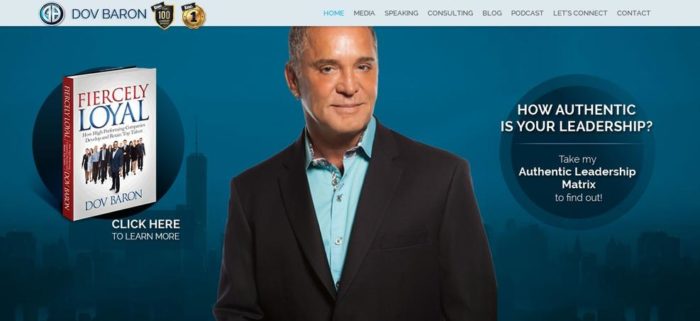Answering my 5 whys
The other day I interviewed leadership speaker, author, and coach Dov Baron for my Leadership and the Environment podcast (not yet launched). He interviewed me for his podcast.
Listen to our conversation (on iTunes)
The interview was tremendous, with tears, laughter, insight, inspiration, dinner invitations and more. Sorry to make you wait for it, but I haven’t launched my podcast.
I asked advice for direction for my podcast. He recommended three exercises, which I decided to post here. The first is the 5 whys exercise: to answer five levels of why I’m doing what I’m doing.
The 5 whys
Why am I working on Leadership and the Environment?
Because the science says that if we keep behaving as we are, we will pollute the Earth’s ecosphere so much that it will hurt human culture, society, and lives. I believe that no one else is working effectively to change that behavior but there’s a chance we can, enough to keep major problems from happening.
If it’s important and no one else is doing it, I’ll do it.
Why do I want to stop hurting human culture, society, and lives?
I feel like it goes without saying, but I want to maximize the chances of Homo sapiens living as long as possible, as happily as possible.
I don’t think we’re living near our potential, which is keeping us unhappy.
Why do you want to maximize those chances?
You could argue that people who haven’t been born don’t matter because if they’re never born, they can’t suffer. But some people will live, no matter how much we pollute. I don’t like that I was born into a world as polluted as it is, and I’d like to keep others from having to live in a yet more polluted world, with more war over resources, pestilence, and famine, with less breathable air or drinkable water.
Why do you want to keep others from having to live with those things?
I think we feel for others who suffer—that we feel empathy for other people and when they suffer we feel bad, even future generations. By contrast, we feel emotions we like when we help others.
I think people see changing their behavior to emit less greenhouse emissions, pollution, and so on as deprivation and sacrifice, whereas I’ve found it can improve your life more than almost anything. That’s been my experience and I think others can get it too.
Why do you want others to share that experience?
More than the abstract benefit to future, unborn generations, and beyond the physical changes to people’s behavior, I believe that helping people change their behavior to protect the environment more will enable them to live more happily today, resigning themselves less to sleepwalking through life. I think people know when they are hurting others through their pollution and that doing so makes them feel emotions they don’t like.
Even if they suppress those feelings, I think they still feel them.
I think I can change that experience from deprivation and sacrifice to introspection, personal growth, and personal development.
I want to do this podcast to help transform one of the biggest problems of our time into one of the greatest chances for personal growth and development. They will have to overcome challenges, but doing so will wake them up to emotional reward and happiness, to replace the internal conflict they are suppressing, which I think eats them up inside.
Read my weekly newsletter

On initiative, leadership, the environment, and burpees

Pingback: What could make me give up leading in the environment? | Joshua Spodek
Pingback: If I led in the environment and no one knew my name, what change I created would be my legacy? | Joshua Spodek